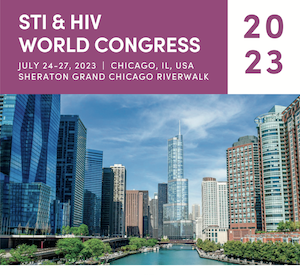Pre-Conference
WHO Pre-Conference Sessions
Monday, July 24, 2023
08:00 - 15:00 CST
Location: Chicago 6
- IM
Ismael Maatouk
World Health Organization, Switzerland
- TW
Teodora Wi
World Health Organization, Switzerland
Organizer(s)
08:00–10:30
What’s new in STI diagnostics and point-of-care testing for STIs
WHO will launch the Global WHO Laboratory and point-of-care diagnostic tests for sexually transmitted infections including HIV, the Diagnostic landscape for sexually transmitted infections and the Point-of-care tests for sexually transmitted infections: target product profiles.
In this session we will discuss updates in STIs diagnostics and will present the diagnostic landscape of available tests, as well as the target product profiles for point-of-care tests for STIs.
10:30–12:00
Enhanced Gonorrhoea Antimicrobial Resistance (AMR) Surveillance
The Enhanced Gonorrhea Antimicrobial Resistance Surveillance Programme (EGASP) aims to strengthen monitoring of AMR in Neisseria gonorrhoeae to ensure standardized and comparable data globally through establishing EGASP in sentinel countries globally.
In this session we will present the EGASP methodologies and patterns of resistance in Neisseria gonorrhoeae in sentinel countries and implications in national AMR response.
13:00–14:20
New developments in the response to AMR STIs: surveillance efforts, new treatments and diagnostics and better strategies for LMICs
The session will present some of the latest developments in the field, share experiences within low- and middle-income countries (LMICs) and chart the way forward in addressing antimicrobial resistance in Neisseria gonorrhoeae.
In this session we will share LMIC experience and challenges in addressing AMR in Neisseria gonorrhoeae, present new or near market diagnostics and therapeutics, new treatment guideline developments and define implementation as well as research and the gaps to better address AMR in Neisseria gonorrhoeae.
14:20–15:00
STI research priorities: Results of a WHO global prioritization process
WHO has undertaken a global research priority setting exercise for STIs, to address the most pressing gaps in STI prevention, management, and control. Through a multi-stage process, stakeholders from all 6 WHO regions provided input on critical research needs to understand STI epidemiology and burden, develop and evaluate new STI interventions, and evaluate implementation of existing interventions and programs.
In this session we will review the methodology of the WHO global STI research prioritization process, highlight the global STI research priorities, and discuss solutions and next steps for advancing the global STI research agenda.
16:00–18:00
Opening session – Plenary on global STIs priorities and strategies
What’s new in STI diagnostics and point-of-care testing for STIs
WHO will launch the Global WHO Laboratory and point-of-care diagnostic tests for sexually transmitted infections including HIV, the Diagnostic landscape for sexually transmitted infections and the Point-of-care tests for sexually transmitted infections: target product profiles.
In this session we will discuss updates in STIs diagnostics and will present the diagnostic landscape of available tests, as well as the target product profiles for point-of-care tests for STIs.
10:30–12:00
Enhanced Gonorrhoea Antimicrobial Resistance (AMR) Surveillance
The Enhanced Gonorrhea Antimicrobial Resistance Surveillance Programme (EGASP) aims to strengthen monitoring of AMR in Neisseria gonorrhoeae to ensure standardized and comparable data globally through establishing EGASP in sentinel countries globally.
In this session we will present the EGASP methodologies and patterns of resistance in Neisseria gonorrhoeae in sentinel countries and implications in national AMR response.
13:00–14:20
New developments in the response to AMR STIs: surveillance efforts, new treatments and diagnostics and better strategies for LMICs
The session will present some of the latest developments in the field, share experiences within low- and middle-income countries (LMICs) and chart the way forward in addressing antimicrobial resistance in Neisseria gonorrhoeae.
In this session we will share LMIC experience and challenges in addressing AMR in Neisseria gonorrhoeae, present new or near market diagnostics and therapeutics, new treatment guideline developments and define implementation as well as research and the gaps to better address AMR in Neisseria gonorrhoeae.
14:20–15:00
STI research priorities: Results of a WHO global prioritization process
WHO has undertaken a global research priority setting exercise for STIs, to address the most pressing gaps in STI prevention, management, and control. Through a multi-stage process, stakeholders from all 6 WHO regions provided input on critical research needs to understand STI epidemiology and burden, develop and evaluate new STI interventions, and evaluate implementation of existing interventions and programs.
In this session we will review the methodology of the WHO global STI research prioritization process, highlight the global STI research priorities, and discuss solutions and next steps for advancing the global STI research agenda.
16:00–18:00
Opening session – Plenary on global STIs priorities and strategies

